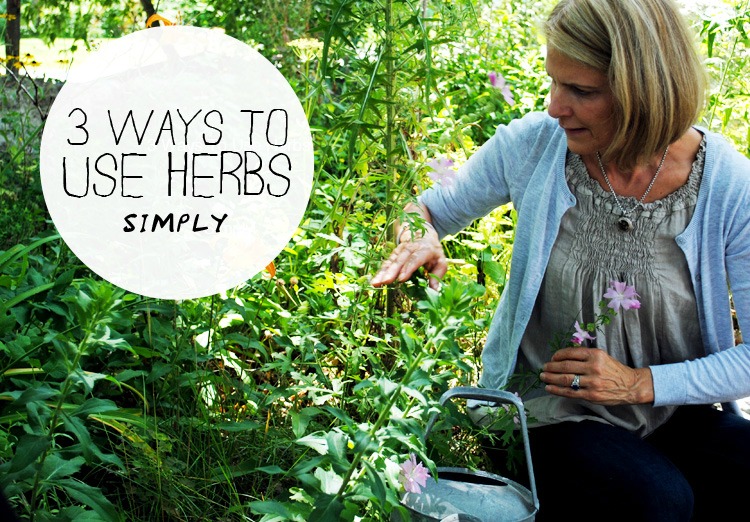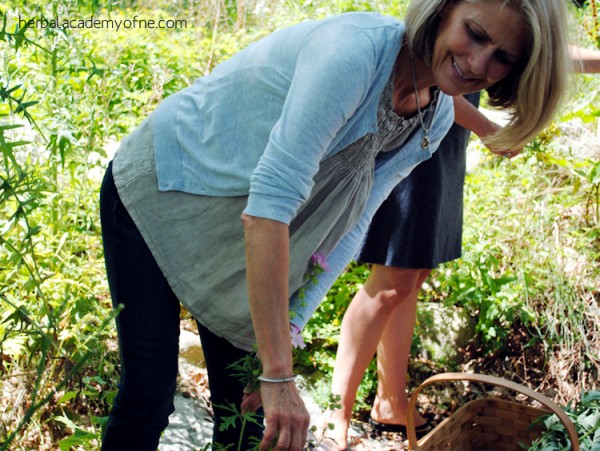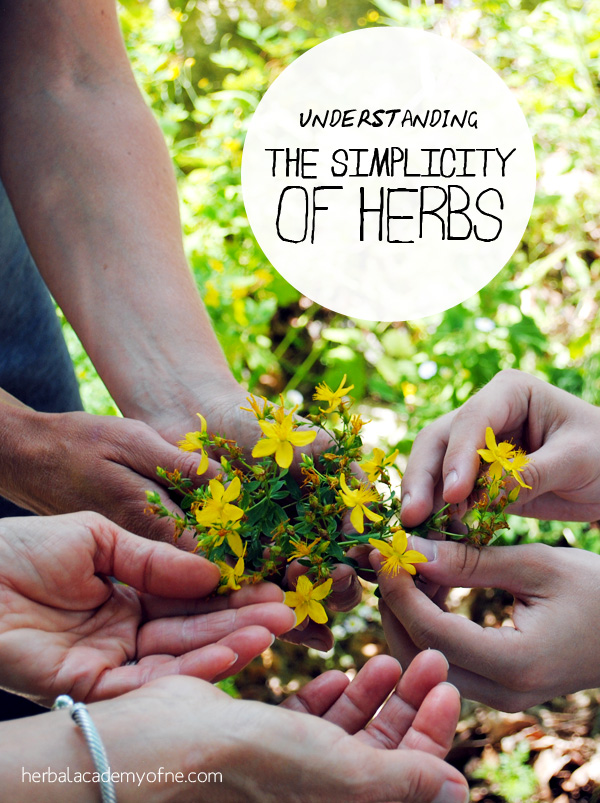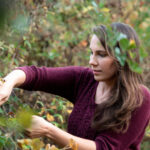
Understanding The Simplicity Of Herbs
Some herbalists use a healing art called “simpling,” referring to the use of one herb at a time rather than in formulas or in combinations. These single herbs are called “simples” and the people who use them, “simplers.” We can all benefit from learning to understand the simplicity of herbs.
No matter how much I learn from the many amazing herbalists in our world today (as well as past herbalists alike), I don’t want to forget what I believe existed at the beginning of herbalism: simplicity. A time when one herb was used to aid in the many various things going on with an individual.
I love the saying, “keep it simple sweetheart.” It cuts through the clutter of a lot of things in life… or at least it does in mine. Simple, simplify, simplicity. Part of simplifying life can be in the way we use herbs, especially when it comes to formulating them. One herb can do a lot for a person. Do we really need a formula that contains 10 or more herbs to act on one single issue? Speaking of “one single issue,” do we really approach using herbs in that way anyway? To me, herbs are a part of a holistic approach to wellness. I want to think in terms of “whole body action” not just one area of action.
Today I want to share three things to keep in mind when it comes to using herbs simply. These things are cumulative and build on each other like a pyramid. Start with 1, then 2, then 3. Not only will these three points help beginning herbalists, but they will help seasoned herbalists get back to the simplicity of herbs as well.
3 Ways To Use Herbs Simply
1. Keep It Local
Where do you live? What herbs grow in your area? Have you ever considered learning and using herbs that are local to you? What about studying with local herbalists that are used to the issues of the people in your area?
The first thing to keep in mind when it comes to the simplicity of herbs is to use local herbs first.
Herbs are dynamic. Sure they’re just “simple weeds,” but these weeds are plants that are both simple and complex in nature. They can adapt to different surroundings and situations. They take on characteristics of their environments. Using herbs from your area, many times, may be more helpful than using herbs that are not local to you.
From time to time, I find myself hearing about some herb that I’ve never heard of before. This herb may grow on the other side of the country from me, and my interest is piqued. I want to learn about this herb. I want to use it. I want to include it among the many other herbs in my herb closet. I feel that I need to know as much as possible about all these different herbs, but what I’m really doing is complicating things. Instead, what I should be doing is researching what this new herb does and then finding a local herb that acts similarly.
You’ve heard the term “herbal allies” right? To me, an ally is one that comes to my aid over and over again. Herbs can do that for us. These are our “go-to” herbs… the ones that always come to mind first… the ones we’re most familiar with. I’d rather have 10 local herbal allies in my herb closet than 100 herbs that I’m barely familiar with.
2. Start With The Least Of These
When you are faced with an issue you want to use herbs for, what are the herbs you choose first? Do you choose the strongest ones you know of in order to get the job done? Perhaps you forget herbs altogether and just opt for the power of essential oils instead.

The second thing to keep in mind when it comes to the simplicity of herbs is to start with the mildest herb first.
Remember, one herb can be used for many different things so when you start with a mild herb, not only will it act on the issue you’re using it for, but it will act on other things in the body as well. Another benefit to starting with a mild herb first is that most mild herbs can be used by everyone without fear of toxicity so you can take large doses of them for long periods of time.
3. It’s All About Dosing
Many people get excited about the possibility of using herbs. They jump in, find herbs to use for something they’re dealing with, and many times don’t get the results they’re looking for. There can be many reasons why herbs don’t work, but one of the more common reasons is improper dosage.
The third thing to keep in mind when it comes to the simplicity of herbs is to use large doses of mild herbs.
Most herbs are mild compared to modern day drugs, and they are nutritive in nature. Because of these things, most times herbs need to be used in larger doses for a longer amount of time in order to be effective. Notice I said “larger doses,” not “stronger doses.” There’s a difference. A larger dose of an herb can be broken up throughout the day. This consistency is much more effective than taking a stronger dose of an herb less frequently.
Another thing to keep in mind with this point is that herbs don’t work overnight like pharmaceuticals can. Herbs bring balance to the body allowing the body to heal itself and this takes time.
The Simplicity Of Herbs
Like I said earlier, the above three points all build on each other in pyramid form. You start with a base of local herbs. From those you choose mild herbs. Once you have those, you take larger, more frequent doses of those mild herbs for an ongoing period of time. Not only can this be a very effective way to see results with herbs, but it can also simplify an herbalist’s approach to using herbs.

I should also say here that the simplicity of herbs isn’t a hard and fast rule when it comes to using herbs, and it in no way suggests using only one herb all the time. Many great herbalists have complex synergistic formulas that they’ve developed over time. Understanding the simplicity of herbs is knowing that you can start small and fill things out from there. Starting with one herb is great. If needed, add to it based on these principles of simpling to create an effective synergistic formula.
Above all, herbalism is an art. It’s not only about knowing what and when to use a particular herb; it’s about knowing when to NOT use an herb. It’s about finding the right herbs for each individual person. It’s not a one-size-fits-all approach. Herbalism can be learned by anyone. You don’t need a degree or a license. It’s a practice of the people. Start at the beginning… with simplicity and grow from there.
Want to learn more about using herbs? Check out the Herbal Academy’s Introductory Herbal Course as well as the Intermediate Herbal Course today!
Meagan Visser is a registered nurse turned home-schooling, stay-at-home mom to 4 small boys. She live in the Southern Appalachian Mountains of East Tennessee, and is currently a family herbalist that is passionate about using herbs for health and healing. She teaches natural-minded mamas how to take charge of their children’s health naturally on her blog GrowingUpHerbal.com and in her Letters To Natural Mamas emails.
REFERENCES
Tierra, Michael. (1998). The Way of Herbs. New York: Pocket Books.
Understanding The Simplicity Of Herbs








